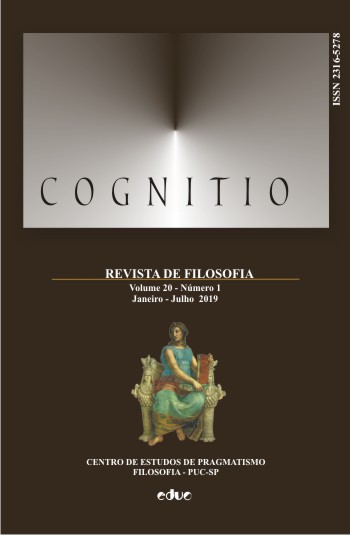Peirce’s Convergence Theory of Truth Redux
DOI:
https://doi.org/10.23925/2316-5278.2019v20i1p91-112Keywords:
Teoria Convergente da verdade, Peirce.Abstract
Peirce’s convergence theory of truth is an intuitive and reasonable account of truth. In its most general sense, it links truth to the results of inquiry. In accord with the pragmatic maxim, Peirce realized that the practical consequences of true claims are that they tend to bring inquiries to fruition and settle opinion. Nonetheless, Peirce’s theory of truth is much maligned and misunderstood. It is argued here that once it is understood that the convergence theory is an inference and generalization from the remarkable mathematical theorem known as the Law of Large Numbers, and how that theorem provides mathematical certainty to induction as the core of scientific method, many of the problems go away. Part of the misunderstanding is also due to the fact that Peirce had three different senses of convergence, which many commentators mix up or misinterpret. With this understanding, it will be shown that, contrary to the analyses by Cheryl Misak and Christopher Hookway, Peirce argues that persistent inquiry by good methods is not merely a regulative ideal for attaining truth—an intellectual hope—but a mathematically proven possibility that has already resulted in established truths.Downloads
Published
2019-09-10
How to Cite
Liszka, J. J. (2019). Peirce’s Convergence Theory of Truth Redux. Cognitio: Revista De Filosofia, 20(1), 91–112. https://doi.org/10.23925/2316-5278.2019v20i1p91-112
Issue
Section
Cognitio Papers









